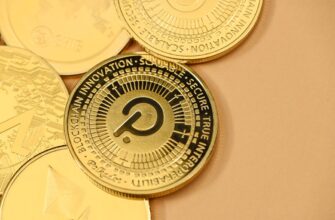- Cryptocurrency Zakat: Navigating Modern Wealth in Islamic Finance
- Understanding Zakat: Islam’s Pillar of Purification
- Cryptocurrency’s Zakat Dilemma: Digital Assets in Sharia Framework
- Calculating Zakat on Cryptocurrency: A Step-by-Step Method
- Islamic Rulings: Diverse Perspectives on Crypto Zakat
- Paying Your Crypto Zakat: 5 Practical Steps
- Why Paying Crypto Zakat Matters Beyond Obligation
- Cryptocurrency Zakat FAQ: Addressing Common Concerns
Cryptocurrency Zakat: Navigating Modern Wealth in Islamic Finance
As cryptocurrency revolutionizes global finance, Muslims face new questions about fulfilling religious duties. Cryptocurrency zakat—the application of Islam’s third pillar to digital assets—demands clarity in our digital age. This comprehensive guide explores rulings, calculations, and practical steps for paying zakat on Bitcoin, Ethereum, and other cryptocurrencies while adhering to Sharia principles.
Understanding Zakat: Islam’s Pillar of Purification
Zakat, one of Islam’s Five Pillars, is an obligatory act of worship requiring Muslims to donate 2.5% of qualifying wealth annually. Key conditions include:
- Wealth must reach the nisab threshold (equivalent to 87.48g of gold)
- Assets must be held for one lunar year (hawl)
- Funds support eight categories of beneficiaries outlined in Quran 9:60
Cryptocurrency’s Zakat Dilemma: Digital Assets in Sharia Framework
Islamic scholars largely classify cryptocurrency as mal-e-naami (wealth that can grow), making it zakatable when conditions are met. Major fatwas from institutions like the Sharia Review Bureau and AAOIFI confirm this stance. Critical considerations include:
- Ownership: Private keys establish full asset control
- Volatility: Value is assessed at lunar year’s end
- Usage: Investment holdings qualify; transactional currencies may differ
Calculating Zakat on Cryptocurrency: A Step-by-Step Method
Accurate calculation requires tracking holdings across wallets and exchanges:
- Determine your zakat anniversary: Fix a Hijri date annually
- Sum all holdings: Include BTC, ETH, stablecoins, and NFTs held as investments
- Apply nisab: Ensure total value exceeds current gold value (check live rates)
- Deduct liabilities: Subtract crypto-related debts
- Calculate 2.5%: Payable on the net balance
Example: If your portfolio equals $50,000 with no debts, zakat due is $1,250.
Islamic Rulings: Diverse Perspectives on Crypto Zakat
Scholarly consensus is evolving but leans toward obligation:
- Permissibility: 85% of contemporary scholars deem crypto zakat mandatory (Islamic Finance Council UK)
- Stablecoins: Tether (USDT) and similar are treated like cash equivalents
- Staking rewards: Considered growth and subject to separate annual calculation
Paying Your Crypto Zakat: 5 Practical Steps
- Convert required crypto to fiat or stablecoins
- Research verified Islamic charities accepting crypto (e.g., Islamic Relief)
- Transfer funds directly to their wallets
- Keep transaction records as religious documentation
- Distribute locally if possible—30% of zakat should benefit your community
Why Paying Crypto Zakat Matters Beyond Obligation
Fulfilling this duty offers spiritual and societal benefits:
- Wealth purification: Cleanses assets from potential greed
- Economic justice: Supports poverty alleviation projects globally
- Industry legitimacy: Strengthens Islamic crypto adoption
- Personal accountability: Aligns modern investments with faith principles
Cryptocurrency Zakat FAQ: Addressing Common Concerns
Q: Is zakat due on cryptocurrency if I’m holding long-term?
A: Yes, if held beyond one lunar year above nisab value, regardless of investment strategy.
Q: How do I value volatile assets like Bitcoin for zakat?
A: Use the market price at your zakat calculation date. Conservative approach: Take lowest price in the final week.
Q: Are decentralized finance (DeFi) earnings zakatable?
A: Yes, profits from yield farming or liquidity pools require separate calculation upon receipt.
Q: Can I pay zakat directly in Bitcoin?
A: Only if the recipient organization accepts it. Otherwise, convert to fiat or stablecoins first.
Q: What if my crypto investments lost value before the hawl ended?
A: No zakat is owed if the portfolio value falls below nisab at year’s end.
As cryptocurrency becomes mainstream, integrating digital assets into zakat calculations ensures Muslims uphold religious duties while participating in modern finance. Consult knowledgeable scholars for personal cases, and leverage crypto tracking tools like Zakatly or IslamicCoin’s calculators for accuracy.








